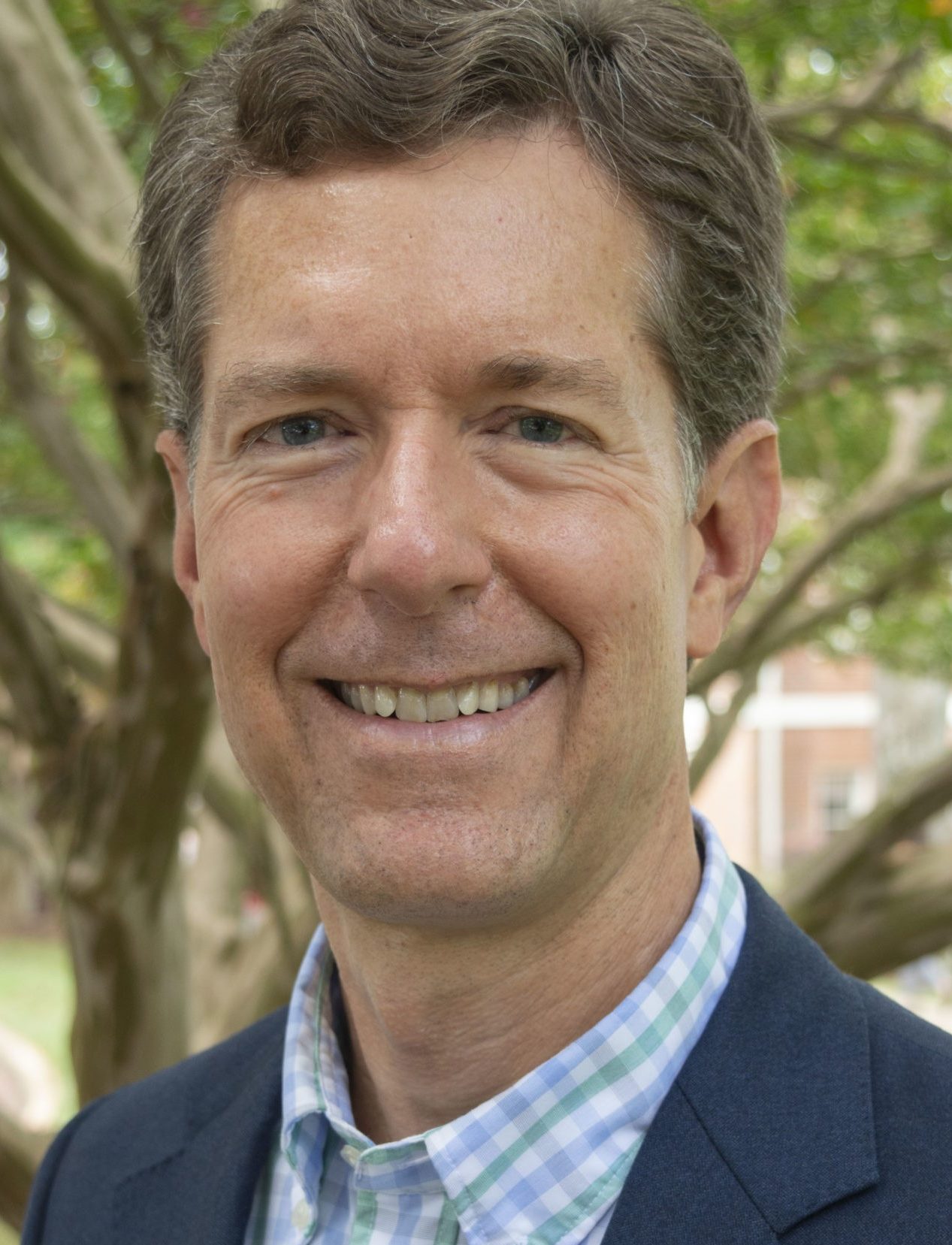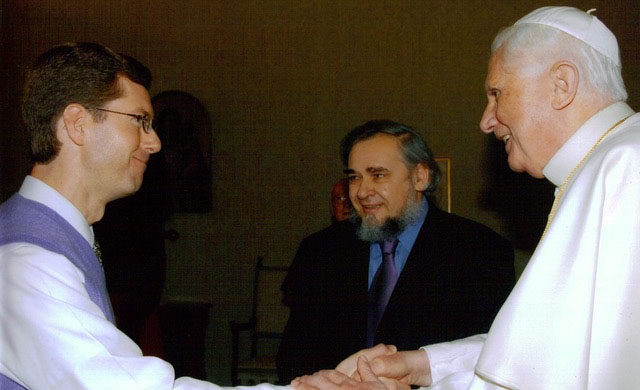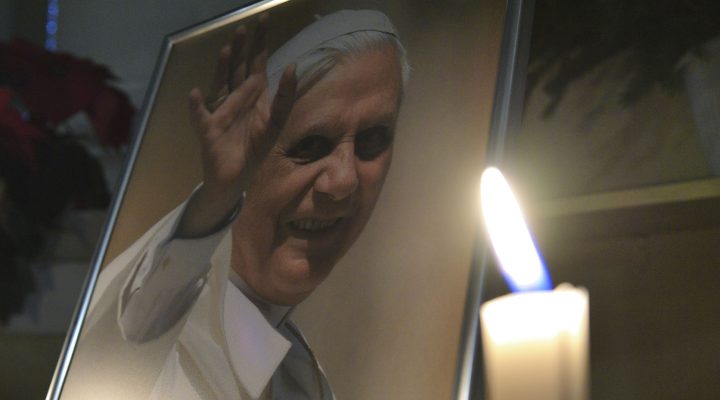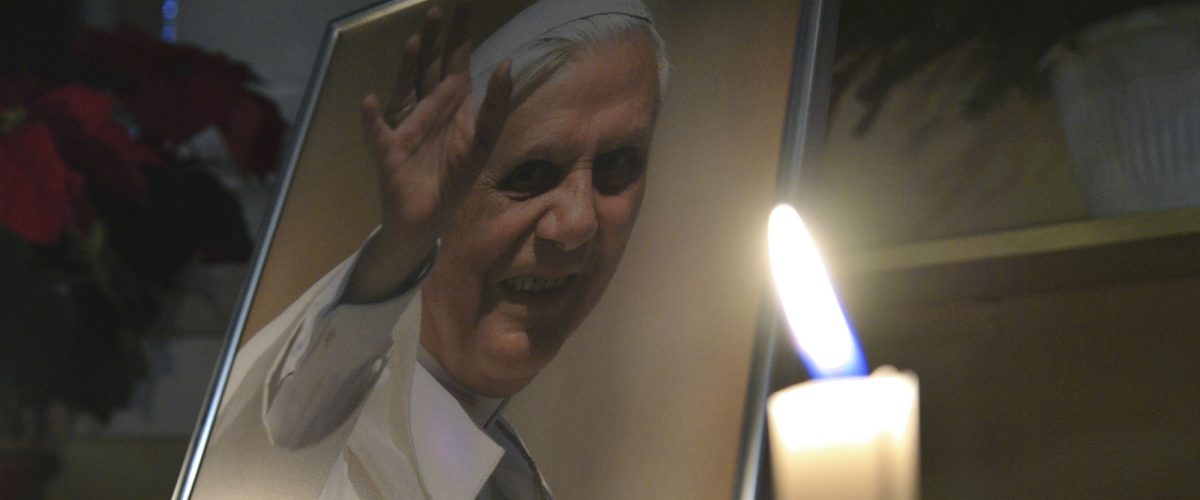Pope Emeritus Benedict XVI, who died on the morning of Dec. 31 at the age of 95, leaves a legacy that will be the subject of intense discussion and debate for decades to come.
In the hours that followed the news of Pope Benedict’s death, I found myself thinking of him primarily as the theologian who happened to become pope in the course of his theological career.
That’s how I experienced him when the joint commission to Phase II of the international dialogue between the Baptist World Alliance and the Catholic Church on which I served had a private audience with Pope Benedict in December 2007.

Steven Harmon
After Pope Benedict greeted us and assured us of his prayers for the progress of our dialogue and for our families in our absence, the chairs of our respective delegations communicated our greetings to him. Baptist delegation chair Paul Fiddes of the University of Oxford mentioned in his greetings that we’d found Benedict’s commentary on the Vatican II Dogmatic Constitution on Divine Revelation Dei Verbum, which he’d written not long after the council as young theologian Joseph Ratzinger, most helpful in our discussions that week. At that moment, Benedict suddenly sat up straight in his chair and leaned forward with brightened eyes. In that moment he was not the pope, but a career academic theologian who’d just learned someone was actually reading and interested in something he’d published.
Later in the audience, we each were introduced to Pope Benedict by our delegation chairs. Paul Fiddes introduced me as “a professor of theology from the United States.” Benedict said, “A professor already? But you are so young!” Having turned 40 only three months earlier, I received those words gladly. (It should be noted that 15 years later, Pope Francis did not say the same thing to me during the audience our joint commission had with him in December 2022.) Pope Benedict’s words to me underscored his own ongoing identification with the role of professor of theology.
While Pope Benedict’s ecclesiastical career included service as Archbishop of Munich and Freising (1977-82), as head of the Congregation for the Doctrine of the Faith (1982-2005), and as pope (2005-2013), he was a professor of theology for most of his career. He served as a member of the faculty at the University of Bonn (1959-63), the University of Münster (1963-66), the University of Tübingen (1966-69), where his colleagues included the reforming Catholic theologian Hans Küng and the Protestant Reformed theologian Jürgen Moltmann, and finally the University of Regensburg (1969-77).
During the Second Vatican Council (1962-65), Ratzinger had served as one of the theological advisers to the bishops assembled for the council. Along with Küng, Edward Schillebeeckx, and Karl Rahner, he was viewed as one of the “reformers” whose theologies influenced the council to embrace ecumenical openness and comparatively more progressive positions on the relationship of the Catholic Church to the modern world. But his theology seemed to take a more conservative turn in the wake of his experience in Tübingen of the widespread Western European student protests of 1968.

Steven Harmon meeting Pope Benedict
The orthodox yet world-engaging theology expressed with clarity in books Ratzinger published as a teaching theologian such as Introduction to Christianity (1968) and Eschatology: Death and Eternal Life (1977) paved the way for a pontificate that did not relinquish the role of writing theologian. His three-volume work Jesus of Nazareth, published from 2007 through 2012, would have been received as a significant contribution to Christology even if it had not been written by a current pope.
All popes since the middle of the 18th century have exercised the teaching office of the pope in the form of papal encyclicals, starting with one issued by Pope Benedict XIV in 1740. But Pope Benedict XVI’s three encyclicals are especially rich expressions of theology. A Baptist theologian friend who shares my interest in dialogue with the Catholic tradition has remarked that the roles in which a pope has served before becoming pope shape his exercise of the papal office in important ways. That was certainly the case with Pope Benedict.
Benedict’s encyclicals God Is Love (2005), On Christian Hope (2007), and Charity in Truth (2009) articulate a theological framework for Christian engagement of the challenges of today’s world that resists categorization as conservative or otherwise. On the one hand, no one would question its orthodoxy. On the other hand, it provides a theological basis for aspects of Catholic social teaching that some might dismiss as “woke” if they came from another source.
Pope Francis, who completed Benedict’s unfinished encyclical The Light of Faith in 2013, has incorporated this theological framework into his own encyclicals On Care for Our Common Home (2015) and On Fraternity and Social Friendship (2020). They liberally quote from and reference Pope Benedict’s encyclicals and apply their theology to care for creation and care for the people who inhabit it. Any differences between the theologies written by these two popes in this form are primarily in nuance rather than substance. But the nuances are important, as is a pastoral approach to their application.
While serving as head of the Congregation for the Doctrine of the Faith, the division of the Vatican curia with responsibility for maintaining the orthodoxy of Catholic faith and practice, the future Pope Benedict XVI was a trusted theological adviser to Pope John Paul II.
It was widely rumored that John Paul II was contemplating promulgating as Catholic doctrine a definition of the status of Mary as “co-redemptrix,” co-redeemer of humanity with Christ. (Two other Marian dogmas, the Immaculate Conception of Mary free from original sin, defined by Pope Pius IX in 1854, and the Assumption of Mary body and soul into heaven at the conclusion of her earthly life, defined by Pope Pius XII in 1950, are the only two times in history a pope has made an “ex cathedra” — from the chair of Peter — definition of doctrine so far.) It is thought that it was then Cardinal Ratzinger who dissuaded John Paul II from promulgating such a doctrine, contending that while Karol Wojtyła could have made such a proposal as an individual Catholic theologian, he could not do so as Pope John Paul II responsible for teaching the faith to which the faithful give their consent.
One could argue that while the papacy of John Paul II profited from the behind-the-scenes theological counsel of Joseph Ratzinger, the papacy of Benedict XVI suffered from the comparative lack of the instinct for public relations that had marked John Paul II’s exercise of the office.
It may be that decades from now, Pope Emeritus Benedict XVI will be remembered primarily as the pope who single-handedly modernized the papacy through his decision to resign from it. It remains to be seen how the handling of cases of clergy sex abuse during his tenure as archbishop and pope will be regarded. It may not be that future generations will think him as the professor of theology who became a pope.
Nevertheless, I believe chief among his enduring contributions is his service as a doctor ecclesiae, a “teacher of the church.” When Pope Francis and future popes teach theology through their encyclicals, exhortations, homilies and other communications, they will be building on Benedict XVI’s legacy of the pope as theologian.
Steven R. Harmon is professor of historical theology at Gardner-Webb University School of Divinity in Boiling Springs, N.C., and serves as co-secretary for Phase III of the international dialogue between the Baptist World Alliance and the Catholic Church. His most recent book is Baptists, Catholics, and the Whole Church: Partners in the Pilgrimage to Unity.


